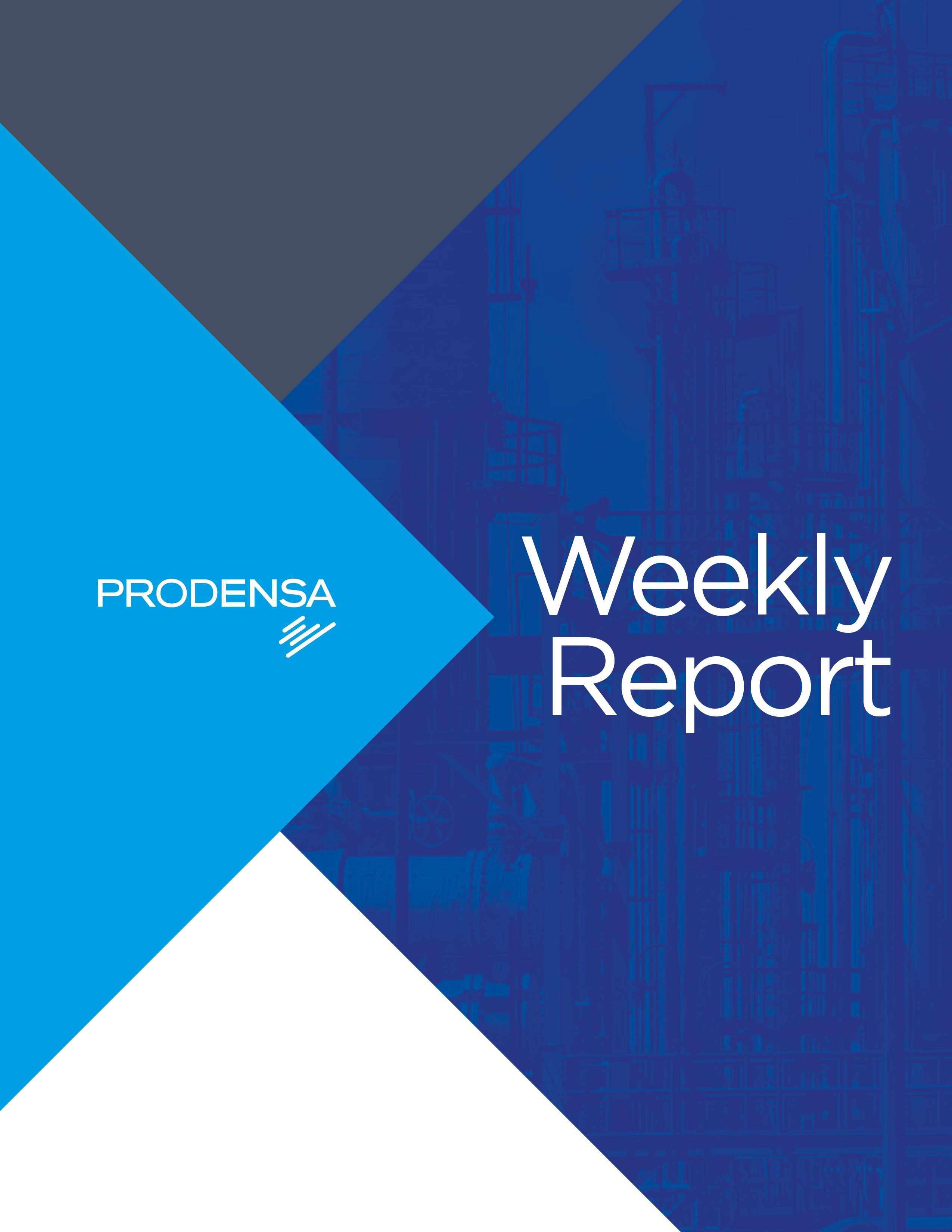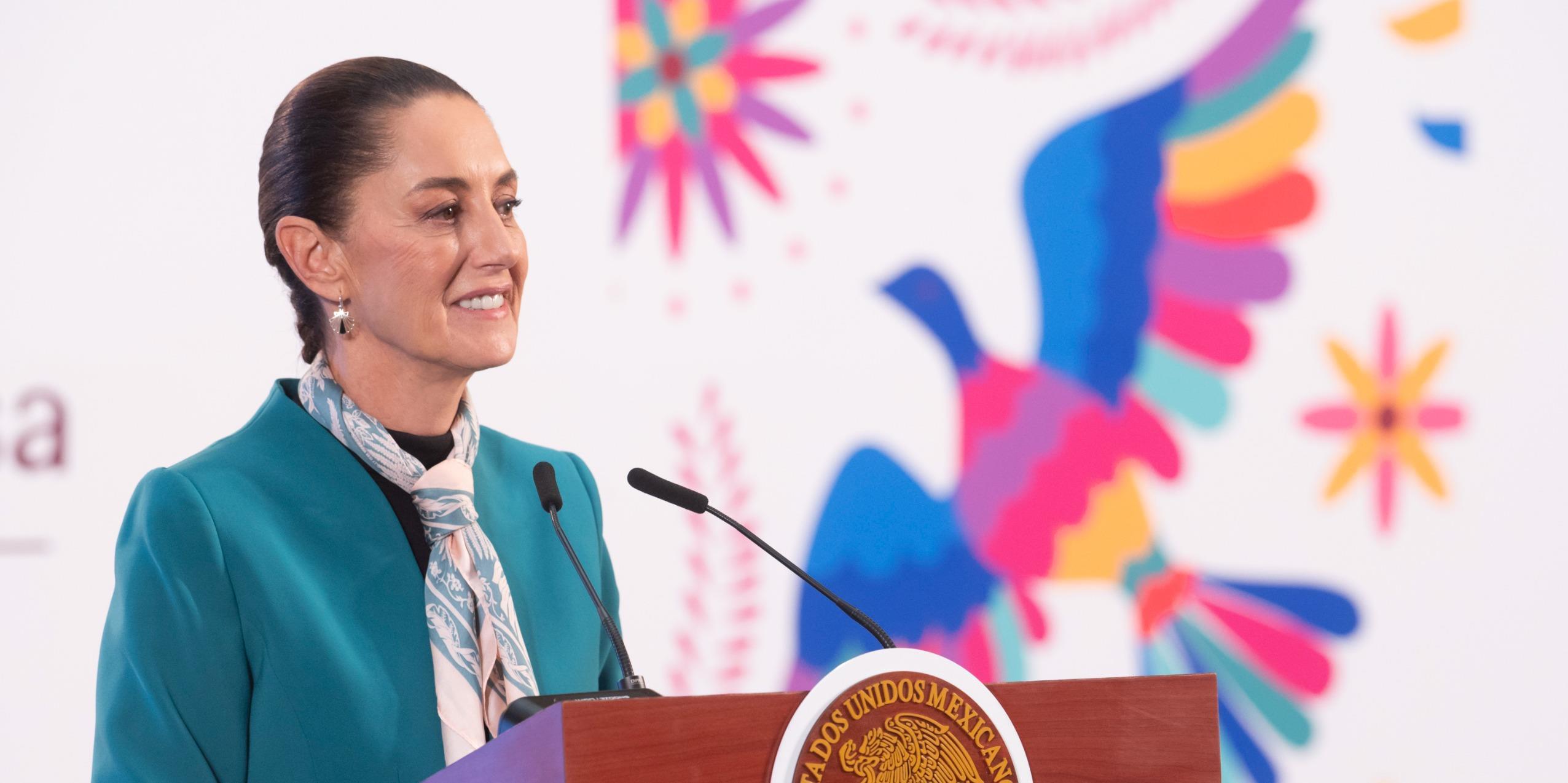
November 2-8, 2024


November 2-8, 2024
The recently unveiled National Energy Plan presented by Sheinbaum aims to boost investment, planning, and competitiveness in the energy sector with four main pillars: encouraging private investment, fortifying energy planning, ensuring energy justice, and establishing a reliable, secure electrical system. Public and private sectors will fund a projected 22,574 megawatts capacity increase, nearly matching recent years’ figures but falling short of earlier targets The government aims to channel over $23 billion into the Federal Electricity Commission (CFE) for generation, transmission, and distribution, while private investors are expected to add 6,400-9,550 MW through mixed production models and long-term contracts with the CFE Regulatory independence will be essential, with pending reforms expected to enable private long-term agreements outside competitive bidding processes
Increased distributed generation and enhanced self-supply capacities will allow smaller entities to avoid excessive transmission fees, but regulations may end legacy benefits under previous reforms. This restructuring and projected investments underscore the government's commitment to a stable energy supply while advancing nearshoring initiatives and environmental goals, although further details on execution are awaited Adjusting investment thresholds as demand fluctuates will be crucial to maximizing competitiveness, providing both challenges and growth opportunities for the sector
Overall, the plan’s success will depend on regulatory clarity and ensuring CFE’s operational autonomy, especially as Mexico targets a 45% clean energy share by 2030 It underscores the critical role of balanced investments and regulatory updates to achieve a sustainable energy transition without compromising economic growth
Source: IMCO

Mexico’s Supreme Court rejected a proposal to partially invalidate the judicial reform, which mandates that nearly all judges be elected rather than appointed This was the last possible action that could have been taken to invalidate the reform Furthermore, the ruling allows the government of President Claudia Sheinbaum to move forward with the reform, which has been championed by the ruling party, Morena, as a way to address corruption within the judiciary
However, critics argue that electing judges could undermine judicial independence and politicize the courts, leading to potential conflicts of interest. The decision comes amidst significant protests by judicial workers, who argue that the reform threatens democracy and Mexico’s system of checks and balances Despite opposition, Sheinbaum and Congress have committed to implementing the reform, with plans to prevent further legal challenges by amending the constitution to protect its provisions The U S and Canadian governments have expressed concerns, citing risks to judicial autonomy in Mexico.
A new initiative proposed by Claudia Sheinbaum aims to reorganize Mexico’s federal administration for increased efficiency, digital governance, and responsiveness to global challenges Key changes include creating the Agency for Digital Transformation and Telecommunications, overseeing policies on digital inclusion, satellite use, and national telecommunications A new Ministry of Science, Humanities, Technology, and Innovation will coordinate research priorities in health, energy, and culture, while a Ministry of Women will address gender equality and violence prevention.
Other changes include expanding the Ministry of Health’s role in managing public health policies, centralizing environmental oversight, and enhancing education and security. The Ministry of Anti-Corruption and Good Governance will drive public service integrity and transparency The reforms seek to modernize operations, emphasizing sustainable development, civic participation, and anti-corruption efforts to better meet citizens' needs.
Source: PARLIAMENTARY GAZETTE
President Claudia Sheinbaum submitted nominations for top financial officials to Mexico’s Chamber of Deputies for ratification Key appointments include Rogelio Ramírez de la O as Secretary of Finance, Édgar Amador as Undersecretary, and Antonio Martínez as SAT chief. Additional nominations involve positions in expenditure management, fiscal auditing, and the Financial Intelligence Unit. Sheinbaum emphasized these choices are based on experience and commitment, highlighting Ramírez de la O’s credentials in economics from UNAM and Cambridge.
Source: MILENIO

Source: NEW YORK TIMES
The re-election of Donald Trump poses significant challenges for Mexico-U S relations, as Trump’s focus on migration, trade, and security could bring instability to bilateral cooperation Trump has threatened a 25% tariff on Mexican exports unless Mexico intensifies efforts to combat drug trafficking and unauthorized migration Mexican analysts suggest that Mexico must “put its house in order” by improving border security and developing a clear negotiation strategy to counter Trump’s transactional, often confrontational, approach Experts emphasize that Trump’s policies will likely pressure Mexico to enhance cooperation on issues like drug trafficking and arms smuggling, potentially straining national resources and sovereignty.
The renewed focus on deportations and stricter border security will impact Mexico’s migrant population and could destabilize Mexican communities Economic uncertainties are also a concern; Trump’s plans to renegotiate the USMCA may introduce unfavorable terms for Mexico, especially if the deal includes clauses targeting China Mexico’s economic reliance on the U.S. may thus limit its bargaining power, requiring diplomatic agility to manage asymmetries in the relationship As Trump takes office, Mexico faces four years of heightened diplomatic and economic pressures, making regional alliances and domestic reforms crucial to mitigate potential setbacks.
Source: EL PAÍS

On November 7, 2024, Mexican President Claudia Sheinbaum met with Marcos Galperin, founder and CEO of Mercado Libre, to discuss the company's upcoming investments in Mexico for 2025. Sheinbaum highlighted her government's focus on digitalization, aiming to attract more investors like Galperin
The meeting, also attended by Secretary of Economy Marcelo Ebrard, emphasized the importance of Mercado Libre's continued investment in the country, which is expected to surpass this year's contribution Mercado Libre, the largest e-commerce platform in Latin America, has been a dominant force in Mexico's online market since 1999 The company has made significant investments in logistics infrastructure, including distribution centers, and operates Mercado Pago, an electronic payments service
Source: EXCÉLSIOR

Toyota announced a $1 45 billion investment in its Baja California and Guanajuato plants in Mexico, focusing on manufacturing the latest Tacoma model, including a hybrid electric version. This investment, supported by Mexico’s Secretary of Economy and despite potential U S tariffs under President Donald Trump, aims to expand Toyota’s Mexican operations and regional competitiveness
Luis Lozano, president of Toyota Motor de México, emphasized Mexico’s importance in North American manufacturing and economic development. This expansion builds on Toyota’s previous $2 billion in Mexican investments over 22 years, creating 1,600 new jobs. Secretary Marcelo Ebrard highlighted the Mexican government's commitment, under President Claudia Sheinbaum, to fostering investor confidence Additionally, Toyota’s plant upgrades will support eco-friendly initiatives, focusing on resource efficiency and emission reduction. Other automakers like GM, BMW, and Volkswagen have also announced increased investments to boost their Mexican production capabilities
Source: EL FINANCIERO

Agreement on Fiscal Incentives for the Northern Border Region
Presented by: César Israel Damián Retes (Plur - PAN)
Purpose: The proposal urges President Claudia Sheinbaum Pardo and the Secretary of Finance to renew or issue a new decree on fiscal incentives for the northern border region with a minimum duration of six years It aims to maintain the benefits of the December 31, 2018 decree to support investment, competitiveness, and job creation in the area
Status: Published in the Parliamentary Gazette
Initiative with Draft Decree to Amend Articles 153-C and 153-K of the Federal Labor Law
Presented by: Olga Patricia Sosa Ruiz (MORENA)
Purpose: Requires employers to provide training in artificial intelligence skills, enabling workers to understand and apply AI in the workplace to boost productivity Recommends plans and programs to improve workforce skills and labor competencies, emphasizing AI-related abilities
Status: Published in the Parliamentary Gazette

Initiative with a Draft Decree to Reform and Add Various Provisions to the Federal Labor Law, the Social Security Law, and the Law of the Institute of Social Security and Services for State Workers, Regarding Chronic Illnesses
Presented by: Ruth Miriam González Silva (PVEM)
Purpose: This initiative proposes that employers must provide accommodations for workers dealing with chronic illnesses based on licenses issued by the ISSSTE
Status: Presented to the plenary of the Senate
Point of Agreement on Cybercrime
Presented by: Senator Sasil Dora Luz De León Villard (Chis - MORENA)
Purpose: The Ministry of Foreign Affairs is urged to take the necessary actions for the Mexican State to adhere to the provisions of the Council of Europe's Convention on Cybercrime and its additional protocol Additionally, within its powers and competencies, it is encouraged to promote the creation of a cooperation and coordination instrument on cybercrime within the Organization of American States.
Status: Turned to Comissions
Initiative with a Bill to Amend Article 123 of the Constitution
Presented by: Napoleón Gómez Urrutia (MORENA)
Purpose: Establishes that for every five days of work, the worker will enjoy at least two days of rest, with full pay for seven days
Status: Presented to the plenary of the Chamber of Deputies
Initiative with Draft Decree to Amend Article 86 of the Federal Labor Law
Presented by: Miguel Márquez Márquez (PAN)
Purpose: Mandates federal and state labor authorities to conduct scheduled inspections to enforce equal pay standards.
Status: Presented to the plenary of the Senate
